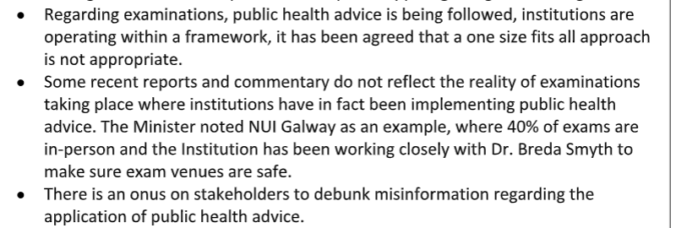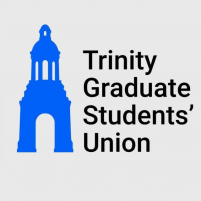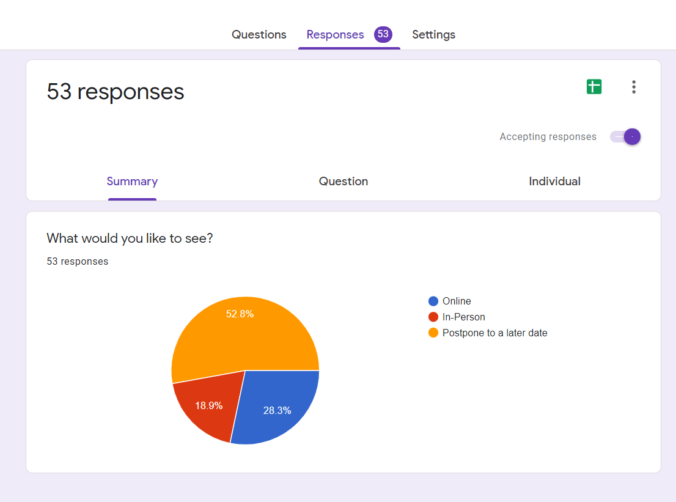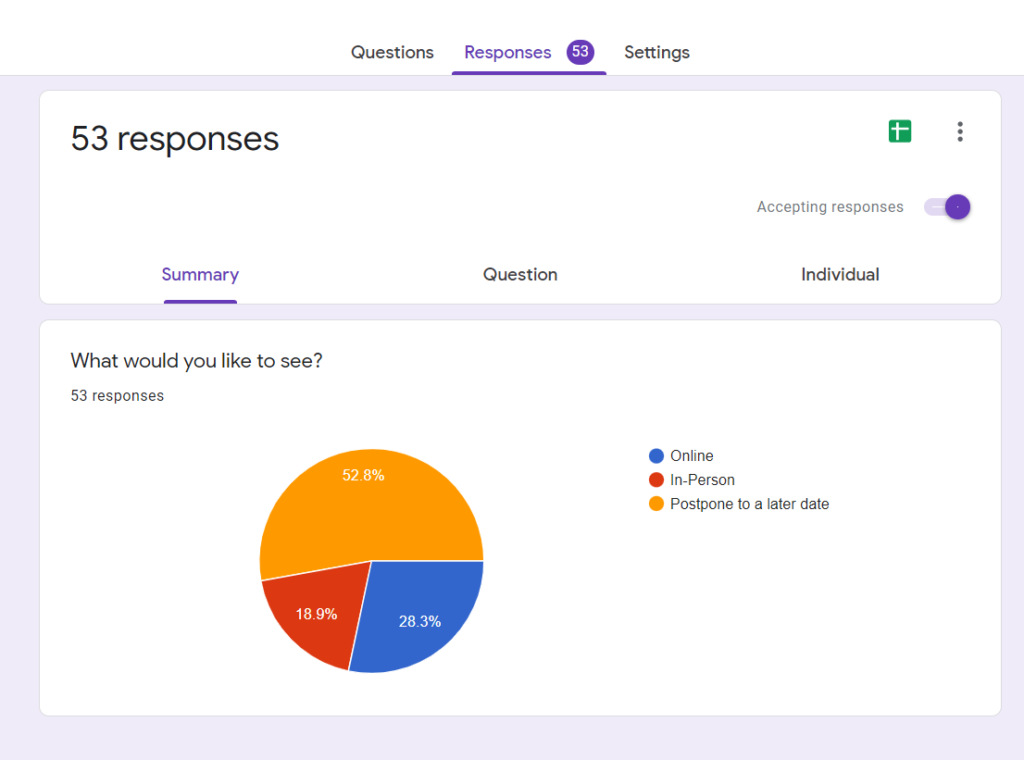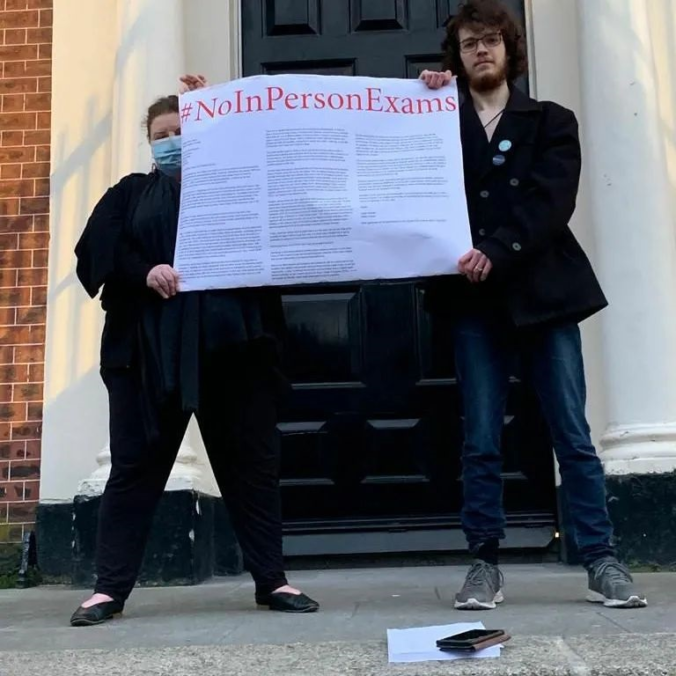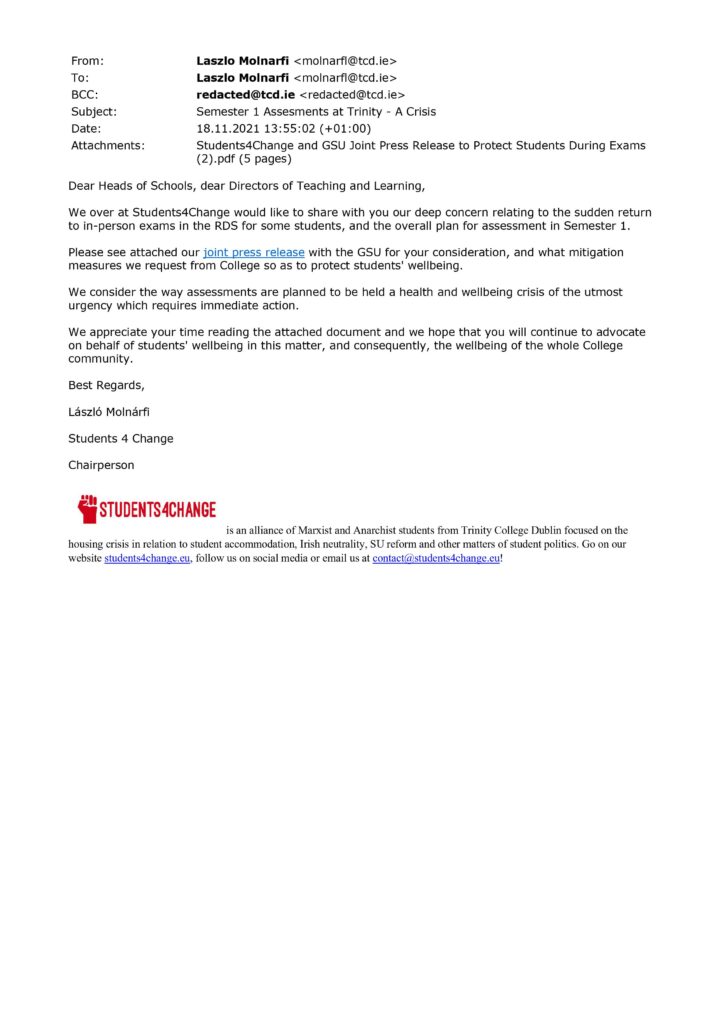An FOI request put forward by László Molnárfi, Chairperson of Students4Change and Gisèle Scanlon, President of the Graduate Students’ Union, on behalf of the #NoInPersonExams national campaign to Minister Harris’ Office has now been granted. The reason for the FOI request was to ascertain a timeline in which Minister Harris engaged with the 5,000 student and staff signatures of the open letter so that he can make a balanced and fair decision relating to in-person examinations. The #NoInPersonExams open letter is spearheaded by two Trinity students, undergraduate László Molnárfi and postgraduate Giséle Scanlon, and has amassed over 5,000 signatures, which were delivered to Minister Harris in good faith on the 1st of December 2021.
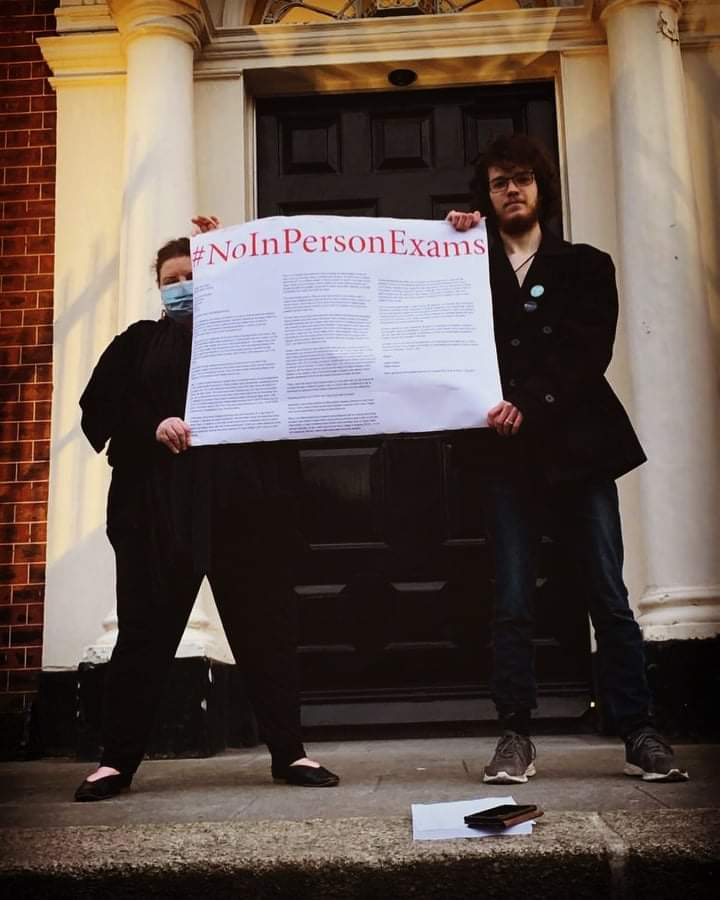
Today we have received the results of this FOI. The correspondance which we received contains 6 records were granted to us after we asked for “Documents, communications regarding the decision of Minister Harris to not intervene in Universities holding in-person exams for Semester 1 of 2021-2022. Any communication between Minister Harris and Donnelly for this issue including the meeting minutes of the meetings that Minister Harris had with
management, staff and student representatives. E.g. the one on December 1st
2021 with the student unions” and “Documents, communications regarding Minister Harris’ and the Department of Further Education “s consideration of the #NoInPersonExams open letter, which was delivered to the Minister’s Office on 52 Stephens Green on the 1st of December 2021”.
As early as November 19th 2021 at a meeting of the Covid-19 TES Steering Group the issue of Semester 1 examinations across Universities and Technological Universities was discussed. Minister Harris said in his opening remarks that “Decisions in relation to examinations should be taken in accordance with the framework in place i.e. on the basis of risk assessment and consultation”, according to meeting minutes.

At the same meeting, the Union of Students Ireland (USI) President Claire Austick raised the issue of having alternative options for students not able to attend in-person examinations, according to meeting minutes of the Covid-19 TES Steering Group.

Dr Joseph Ryan from THEA, the Technological Higher Education Association, brought concerns relating to increasing levels of anxiety surrounding examinations.
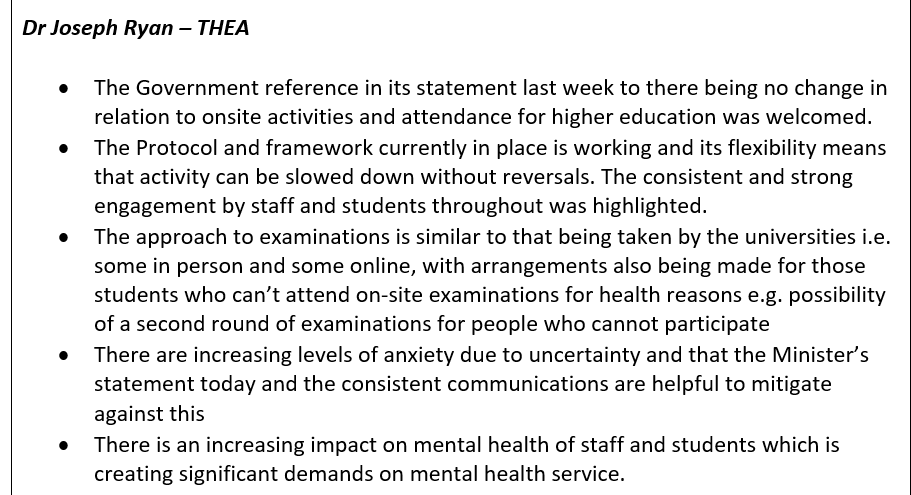
The IUA’s representative at the meeting stated the importance of alternative examination arrangements and also access to PCR tests. The IUA is short for the Irish Universities Association and they represent DCU, Maynooth Uni, NUI Galway, TCD, TU Dublin, UCC, UCD and the University of Limerick. The IUA is composed of the Presidents of each of these Colleges.
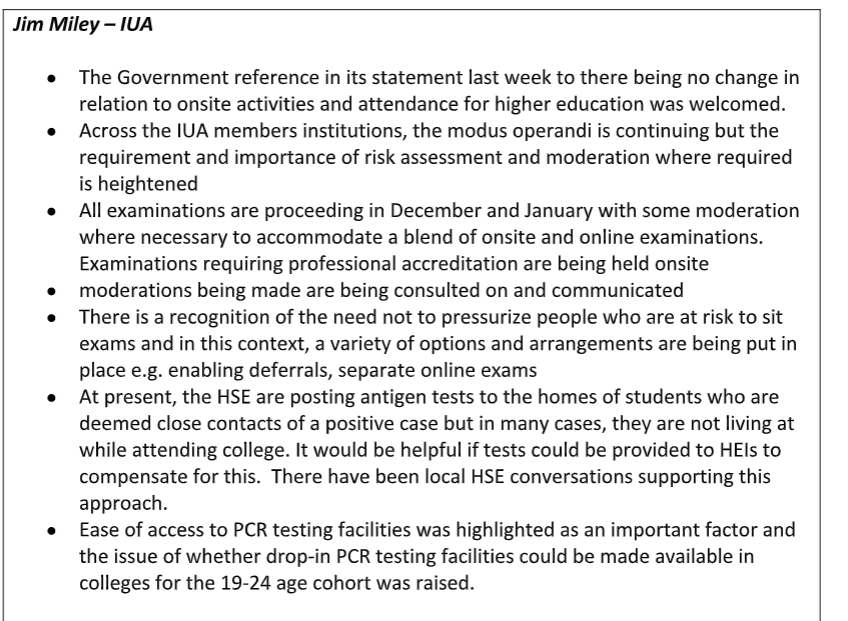
Just a month later, at the next meeting of the Steering Committee on the 10th of December 2021, in the middle of exams, Minister Harris in his opening remarks is seen to call the student voices, like NUIGSU, who called out instititutions not creating safe exam conditions to be lies. He called upon stakeholders to “debunk misinformation regarding the application of public health advice”. He also said that an agreement was reached that a “one size fits all approach is not appropriate” – this agreement must be referring to the government’s own decision, as meeting minute do not indicate any sort of direct discussion on the topic.
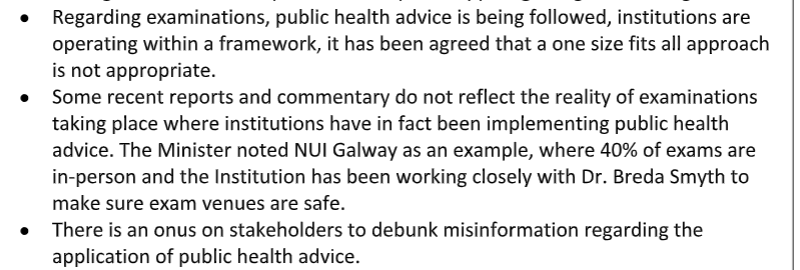
Dr Breda Smyth, is the director of public health for the Health Service Executive in the west, and also is one of the leaders of the Unicov project.
Claure Austick, USI President, after the opening remarks of Minister Harris, reiterated the importance of alternative options for assesment students in light of rising Covid-19 cases.
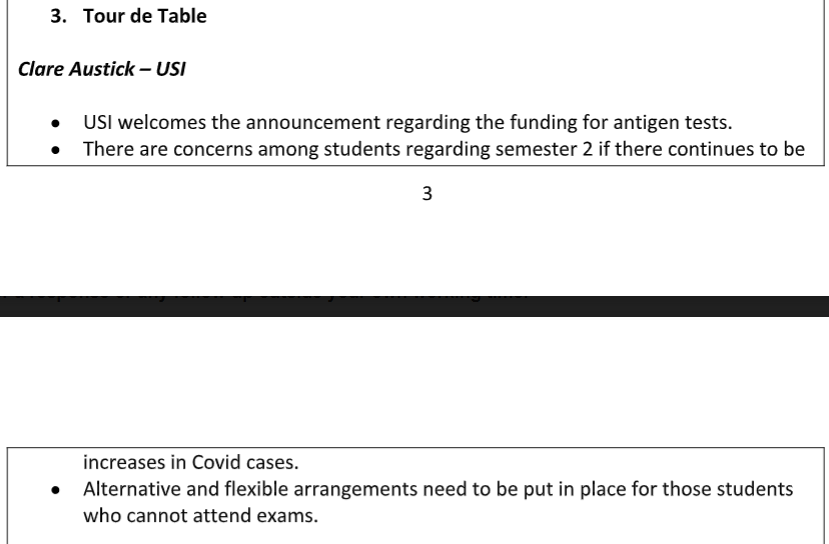
The IUA suddenly at this meeting agreed with Minister Harris, contradicting students’ and staff’s account on a number of issues, namely the amount of in-person exams, whether these exams are safe and whether there are proper alternative arrangements (e.g. deferral mechanisms) in place. They also claim that whenever an exam was postponed due to Storm Bara, it was moved to a different date “in agreement with local student unions”, but this was clearly not the case for NUI Galway’s Saturday exams.
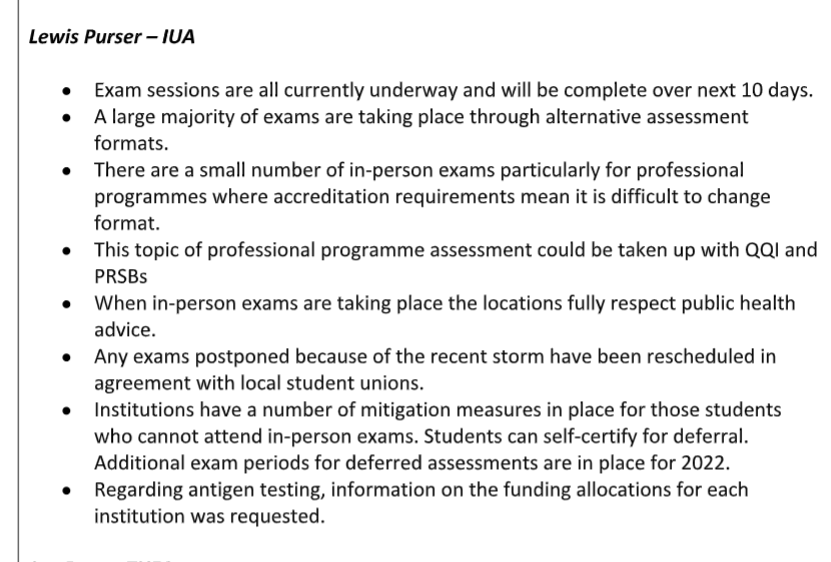
Stella Griffin from FORSA, an Irish trade union, noted concern for invigilators (since they are older and more at-risk) in exam halls at the meeting.
It does not seem that at these meetings Minister Harris allowed much discussion, either at the November meeting, or at the December one, despite claiming to do so. His Office had already made up their minds before hearing any of the other stakeholders, and the government seems to not have listened to student and staff concerns. It seems that at the November meeting, promises and suggestions were made by a variety of stakeholders that were never implemented by the government. Proper deferral was not implemented across many universities – 86% said they felt pressured into not deferring according to a recent survey, and PCR testing at the time of the Christmas exams was very difficult to access. Eyewitness reports, pictures and videos detail crowded scenes in examination halls. It seems that those in-charge have no clue what is going on on-the-ground.
Following the 10th of December meeting, a document which describes how to answer questions from TDs in the Dail relating to in-person exams was disseminated to government members. It said that the key messaging must be that all stakeholders were consulted. Furthermore, it crafted a reply to possible “opposition attack lines”.
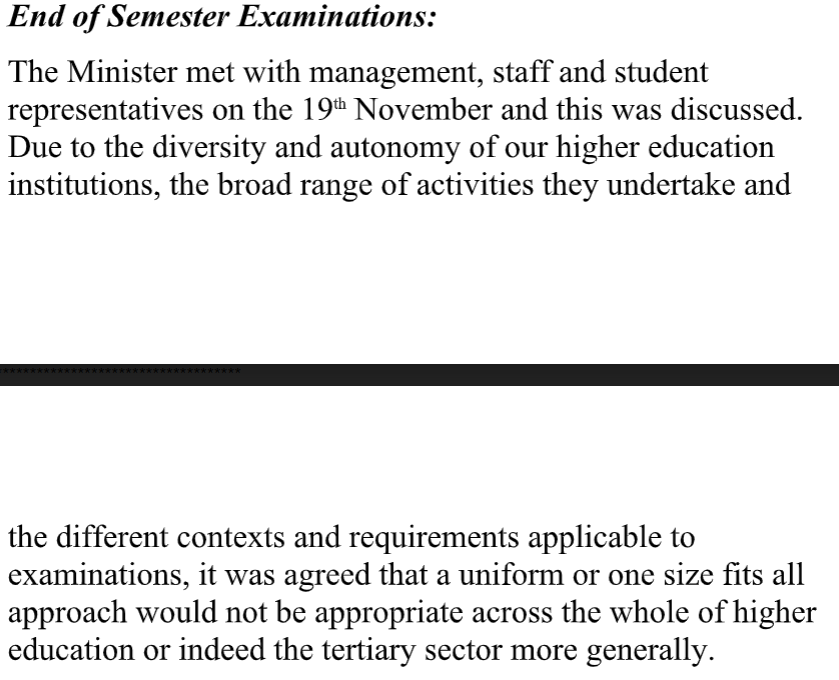
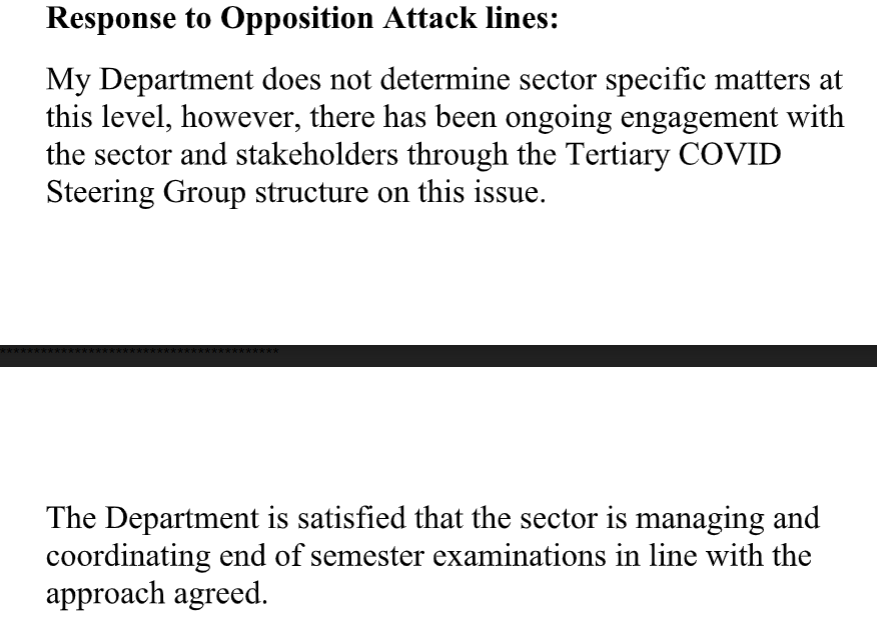
Another meeting was held just between Minister Harris and the USI and different SUs on the 1st of December 2021. The briefing document prepared for Minister Harris for this meeting shows that Minister Harris’ Office essentially let Universities take the blame. This was re-iterated to the representatives at the meeting, who raised the issue of #NoInPersonExams.
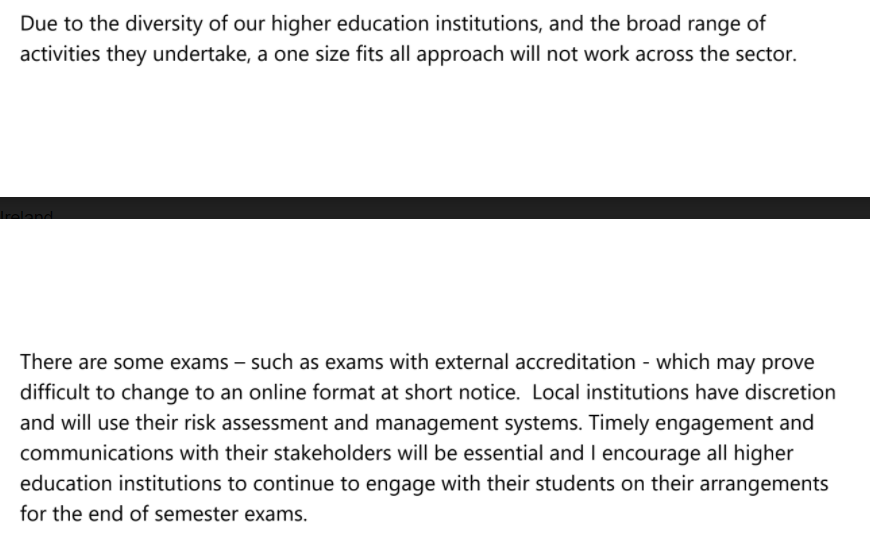

As far as whether the Minister’s Office considered the #NoInPersonExams open letter with 5,000 signatures, they did not. They put it in the government system, but there is no indication that Minister Harris or others in the government took the time to engage with the signatories. This shows a huge disrespect for the 5,000 students and staff who raised the mental and physical dangers of in-person examinations and is an affront to the democratic process.
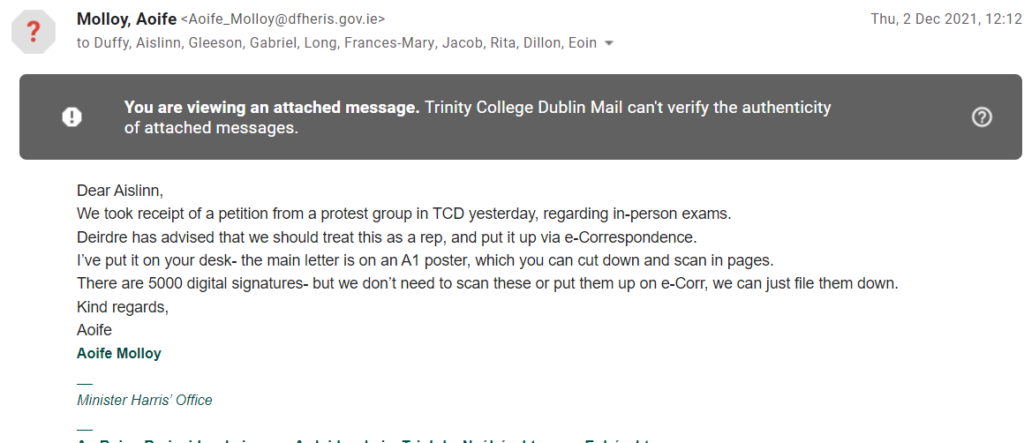
This was the only communication and document relating to the FOI about whether the government considered the #NoInPersonExams open letter. Branding the Graduate Students’ Union of Trinity a “protest group” just shows how out-of-touch Minister Harris’ Office is with student representation on-the-ground.
Find all the original FOI documents here. Note that for the briefing document mentioned just a moment ago, there were supposed to be “redacted” parts, but the government failed to redact it properly – you can simply copy-paste from the PDF, so we made an unredacted version which describes different issues relating to third-level education at the moment.
We would hope that the Minister has learnt lessons from this, namely that the next time we call to deliver a petition with several thousands signatures and hundreds of thousands of social media interactions, that the Minister will have the good grace to engage with not only the content of the petition, but should extend appropriate respect to the many thousand voters who took the time and consideration to be a part of the campaign.
